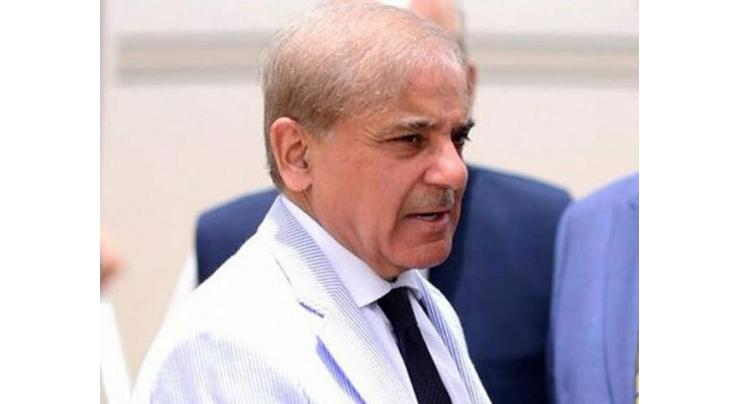
- Home
- Pakistan
- News
- Fourth National Assembly approaches term conclusion, enacting 235 bills over five years
Fourth National Assembly Approaches Term Conclusion, Enacting 235 Bills Over Five Years
Mohammad Ali (@ChaudhryMAli88) Published August 09, 2023 | 10:30 PM

The 15th National Assembly of Pakistan joined the ranks of the few assemblies that have successfully completed their terms, following the passage of an impressive total of 235 bills
ISLAMABAD, (UrduPoint / Pakistan Point News - 9th Aug, 2023 ) :The 15th National Assembly of Pakistan joined the ranks of the few assemblies that have successfully completed their terms, following the passage of an impressive total of 235 bills.
It marked the fourth instance in the country's history where a National Assembly has successfully completed its term. Although the official term completion date for the 15th National Assembly was slated for August 12, 2023, Prime Minister Mian Muhammad Shehbaz Sharif announced its dissolution three days ahead, on August 9, 2023.
Over the course of its tenure, the outgoing Assembly conducted a total of 52 sessions, dedicated to deliberating and passing vital legislative proposals, totalling the impressive count of 235 bills. These legislative measures were meticulously designed to address a wide spectrum of issues and serve the best interests of the nation.
Prime Minister Mian Muhammad Shehbaz Sharif delivered a farewell address in the National Assembly, extending his heartfelt gratitude to a multitude of figures who contributed to the governance of the nation.
He expressed his appreciation for the efforts of Speaker, National Assembly Raja Pervaiz Ashraf, Co-Chairperson PPPP Asif Ali Zardari, Minister for Foreign Affairs Bilawal Bhutto Zardari, the entire cabinet, as well as the esteemed members of the lower house. This collective effort played a vital role in effectively managing the government's affairs.
In his address to the National Assembly, Speaker Raja Pervaiz Ashraf emphasized the assembly's representation of the country's diverse population of 250 million people. He underscored the assembly's role as a sovereign institution, entrusted with the responsibility of enacting measures to alleviate the public's concerns.
The dynamics of the outgoing assembly saw the ousting of former Prime Minister Imran Khan through a motion of no-confidence.
Subsequently, Mian Muhammad Shehbaz Sharif secured a vote of confidence, leading him to assume the role of Prime Minister. Notably, during the tenure of the assembly, a total of 126 bills were passed from August 13, 2018, to April 9, 2022. The remaining 109 bills were endorsed during the PML-N-led government's term, spanning from April 10, 2022, to August 9, 2023.
The National Assembly's achievements extended beyond bills, as evidenced by the passage of 106 resolutions, the presentation of 449 reports, thousands of questions and calling attention notices related to various ministers. The reports in the National Assembly encompassed an array of topics, including legislative proposals, questions, calling attention notices, and other pertinent matters.
Reflecting on the nation's political history, the year 2002 marked the holding of general elections, resulting in the Pakistan Muslim League-Q securing a majority in the 12th National Assembly. Despite completing its five-year term, none of the elected Prime Ministers managed to serve their full tenures.
Mir Zafarullah Khan Jamali assumed the Prime Ministerial position after the election but resigned in June 2004. Subsequently, Shaukat Aziz succeeded him.
The 2008 government formation saw the Pakistan Peoples Party taking the reins, yet even elected Prime Minister Yusuf Raza Gillani faced disqualification by the Supreme Court due to a conviction of contempt of court and Raja Pervaiz Ashraf was elected as the Prime Minister on June 22, 2012.
Transitioning into 2013, the PML-N assumed power, concluding its constitutional term in 2018. However, the spectre of the Panama papers case loomed, leading to the disqualification of elected Prime Minister Nawaz Sharif in 2017. Shahid Khaqan Abbasi subsequently assumed the role of Prime Minister.
Related Topics
Recent Stories

Wasim Akram touches fans’ heart by new look

Empowering women for employment is the need of hour, says Sadaffe Abid

Global study reveals Pakistan’s inadequate measures against Tobacco Industry

Co-Working Center launched in Okara under PITB’s e-Earn program

BHC judges recommend legal action over agencies interference into judicial matte ..

Third Women T20I: Pakistan to face West Indies today

Mahira Khan delights at Arijit Singh’s concert in Dubai

Dubai Customs Celebrates World Intellectual Property Day, Honors Schools and Uni ..

Vivo Reveals Durefishan Saleem as Brand Ambassador for its Upcoming Y100 Smartph ..

FIA investigates alleged irregularities in tickets’ sale for PSL, int’l matc ..

IMF approves $1.1b final tranche for Pakistan

Naseem Shah among others who registers for LPL 2024
More Stories From Pakistan
-
Labours play vital role in national economy: KP Speaker
59 seconds ago -
Pak-Saudi bilateral ties, economic partnership getting stronger: PM
1 minute ago -
Steps being taken to enhance workers welfare fund: CM Bugti
1 minute ago -
MWMC upgrades trash collection capacity with 62 new containers
1 minute ago -
LESCO collects over Rs 4.42m from 185 defaulters in 24 hours
1 minute ago -
LESCO Chief reviews important matters of company
1 minute ago
-
Bilawal affirms PPP's dedication to labour empowerment, social justice
2 minutes ago -
Research scholar delivers lecture at SMIU
11 minutes ago -
Motorcycle lifter gang held
11 minutes ago -
DC visits OPD of BVH to inspect revamping
11 minutes ago -
Over 12,000 children enrolled in Govt schools under enrollment campaign: DEO
11 minutes ago -
Minister ensures transparency in SSC examinations; action against cheating
12 minutes ago